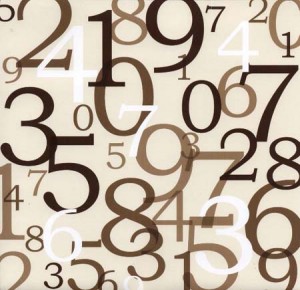
Young girls might learn to fear math from the women who are their earliest teachers, new research suggests.
Despite gains in recent years, women still trail men in some areas of math achievement, and the question of why has provoked controversy. Now, a study of first- and second-graders suggests what might be part of the answer: Female elementary school teachers who are concerned about their own math skills could be passing that concern along to the girls they teach.
Young students tend to model themselves after adults of the same sex, and having a female teacher who is anxious about math might reinforce the stereotype that boys are better at math than girls, explained Sian L. Beilock, an associate professor in psychology at the University of Chicago.
Beilock and colleagues studied 52 boys and 65 girls in classes taught by 17 different teachers. Ninety percent of U.S. elementary school teachers are women, as were all of those in this study.
The students’ math ability was not related to their teacher’s math anxiety at the start of the school year, the researchers report in the Jan. 26 edition of “Proceedings of the National Academy of Sciences.”
But by the end of the year, the more anxious teachers were about their own math skills, the more likely their female students—but not the boys—were to agree that “boys are good at math and girls are good at reading.”
In addition, the girls who answered that way scored lower on math tests than either the classes’ boys or the girls who had not developed a belief in the stereotype, the researchers found.
“It’s actually surprising in a way, and not. People have had a hunch that teachers could impact the students in this way, but didn’t know how it might do so in gender-specific fashion,” Beilock said in an interview with the Associated Press.
Beilock, who studies how anxieties and stress can affect people’s performance, noted that other research has indicated that elementary education majors at the college level have the highest levels of math anxiety of any college major.
“We wanted to see how that impacted their performance,” she said.
After seeing the results, the researchers recommended that the math requirements for obtaining an elementary education teaching degree be rethought.
“If the next generation of teachers—especially elementary school teachers—is going to teach their students effectively, more care needs to be taken to develop both strong math skills and positive math attitudes in these educators,” the researchers wrote.
Janet S. Hyde, a professor in the Department of Psychology at the University of Wisconsin-Madison, called the study a “great paper, very clever research.”
“It squares with an impression I’ve had for a long time,” said Hyde, who was not part of the research team.
Hyde was lead author of a 2008 study showing women gaining on men in math skills but still lagging significantly in areas such as physics and engineering.
Girls who grow up believing that females lack math skills wind up avoiding harder math classes, Hyde noted.
“It keeps girls and women out of a lot of careers, particularly high-prestige, lucrative careers in science and technology,” she said.
Beilock did note that not all of the girls in classrooms with math-anxious teachers fell prey to the stereotype, but “teachers are one source,” she said.
Teacher math anxiety was measured on a 25-question test about situations that made them anxious, such as reading a cash register receipt or studying for a math test. A separate test checked the math skills of the teachers, who worked in a large Midwestern urban school district.
Student math skills were tested in the first three months of the school year and again in the last two months of the year.
The research was funded by the National Science Foundation.
Links:
Proceedings of the National Academy of Sciences
- ‘Buyer’s remorse’ dogging Common Core rollout - October 30, 2014
- Calif. law targets social media monitoring of students - October 2, 2014
- Elementary world language instruction - September 25, 2014

